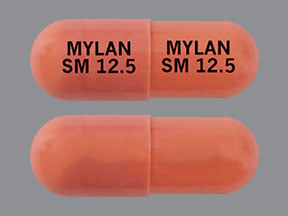
Sutent Coupons & Savings Card – Discount Prices from $1106.32
Brand for: Sunitinib
My prescription
Edit
12.5MG, Sunitinib (28 Capsules)
Select pharmacy

CVS
$5400.50
COUPON PRICE
Albertsons
$1106.32
COUPON PRICE
Walgreens
$1352.00
COUPON PRICE
Walmart
$5497.59
COUPON PRICESutent savings card
Show this card to your pharmacist
Albertsons
$1106.32
BIN
ID
PCN
GRP
019876
LHCD9FA987
CHIPPO
LHX
Powered by
Related kinase inhibitors prescriptions
Related kinase inhibitors prescriptions
Sutent (Sunitinib) dosage forms
Dosage Quantity Price from Per unit 12.5MG 28 Capsules $1106.32 $39.51 25MG 28 Capsules $2205.14 $78.75 37.5MG 28 Capsules $3303.96 $118.00 50MG 28 Capsules $3833.28 $136.90
| Dosage | Quantity | Price from | Per unit |
|---|---|---|---|
| 12.5MG | 28 Capsules | $1106.32 | $39.51 |
| 25MG | 28 Capsules | $2205.14 | $78.75 |
| 37.5MG | 28 Capsules | $3303.96 | $118.00 |
| 50MG | 28 Capsules | $3833.28 | $136.90 |
Is SUTENT a chemotherapy?
Sutent (sunitinib) is not classified as traditional chemotherapy. It is a type of targeted therapy known as a tyrosine kinase inhibitor. It works by blocking specific proteins that promote the growth of cancer cells, thereby inhibiting tumor growth.
What class of drug is SUTENT?
SUTENT (sunitinib) is classified as a tyrosine kinase inhibitor. It is used in the treatment of certain types of cancer by blocking specific enzymes that promote cancer cell growth.
What foods should I avoid while taking SUTENT?
While taking SUTENT (sunitinib), it is advisable to avoid grapefruit and grapefruit juice. Grapefruit can interfere with the metabolism of the medication, potentially leading to increased levels of the drug in the bloodstream and a higher risk of side effects. It is always best to consult with a healthcare provider for personalized dietary recommendations while on this medication.
Is sunitinib a chemotherapy drug?
Sunitinib is not classified as a traditional chemotherapy drug. It is a type of targeted therapy known as a tyrosine kinase inhibitor. It works by blocking specific proteins that promote the growth of cancer cells.
Does SUTENT make you tired?
Yes, fatigue is a common side effect of SUTENT (sunitinib). Patients taking this medication may experience tiredness or a decrease in energy levels. It is important for patients to discuss any side effects with their healthcare provider, as they can offer guidance on managing them.
